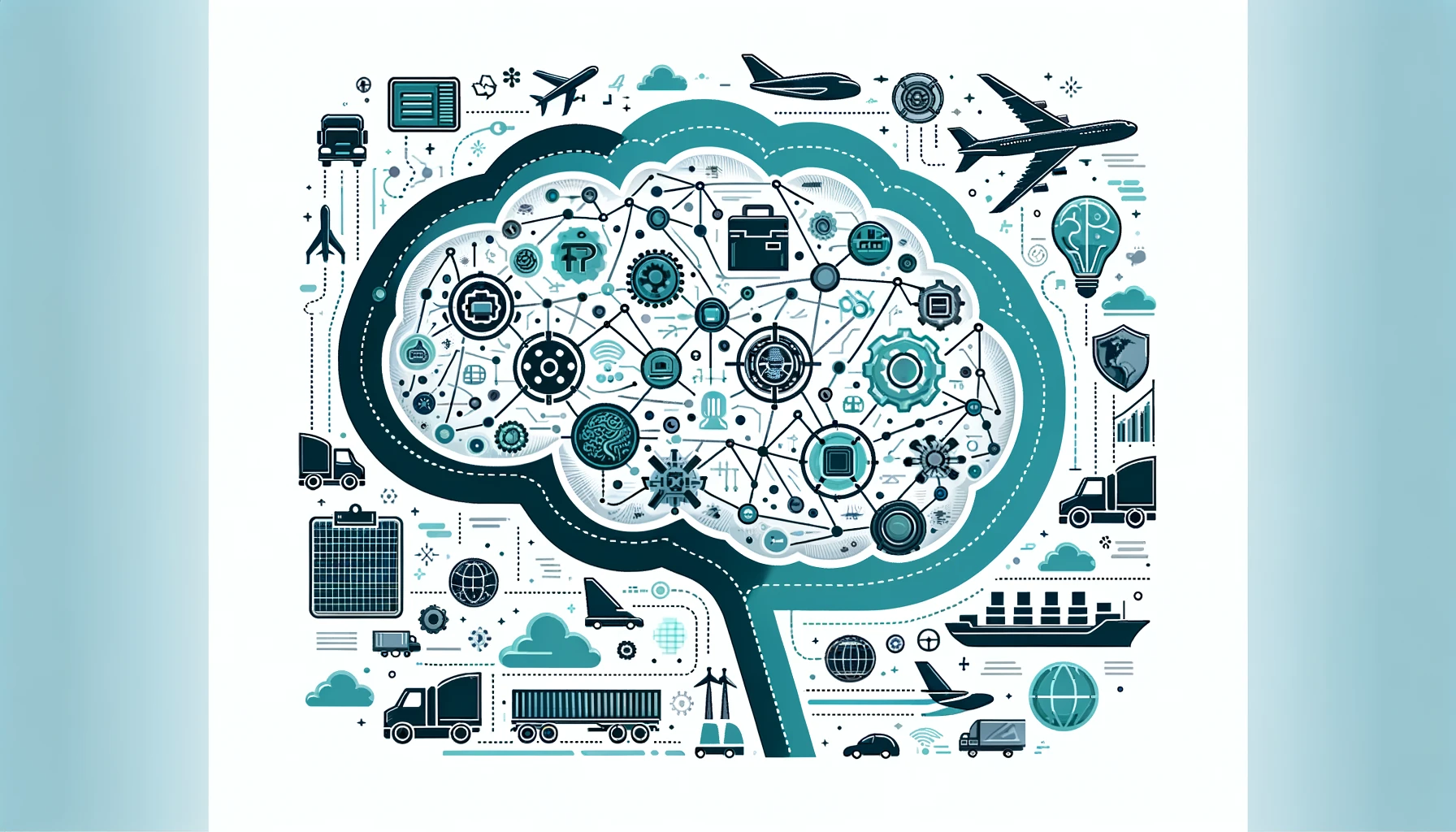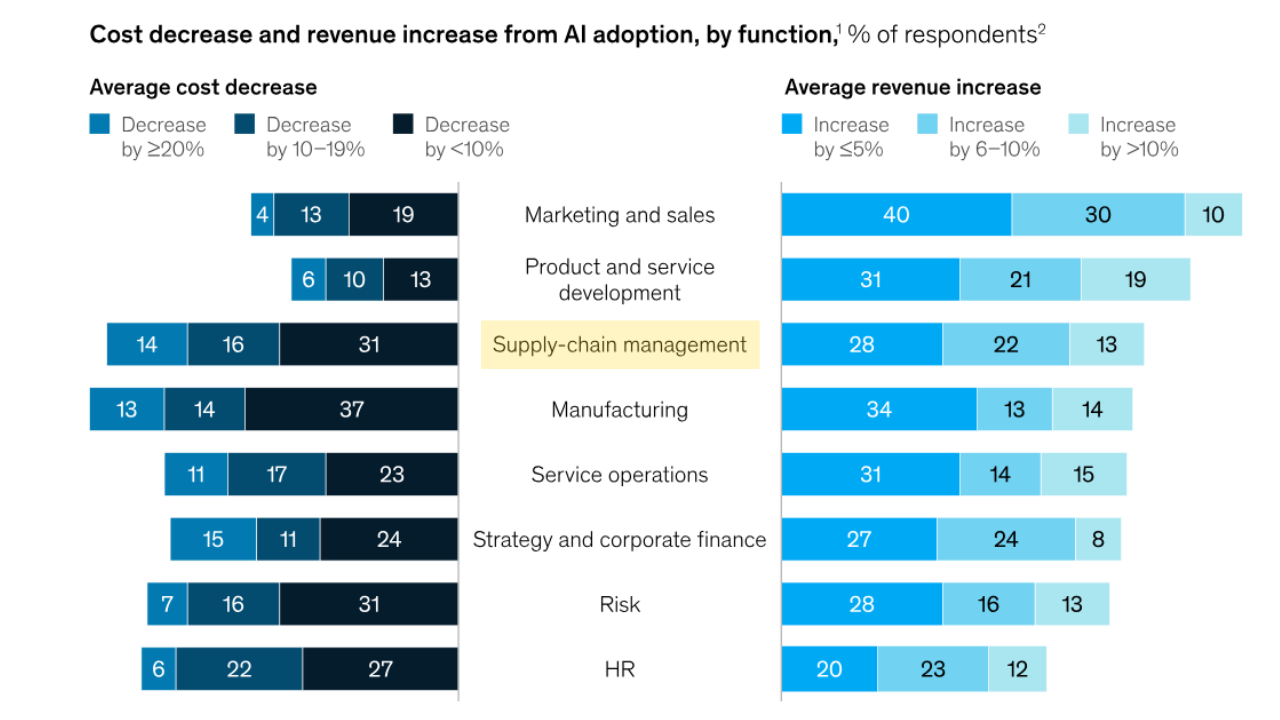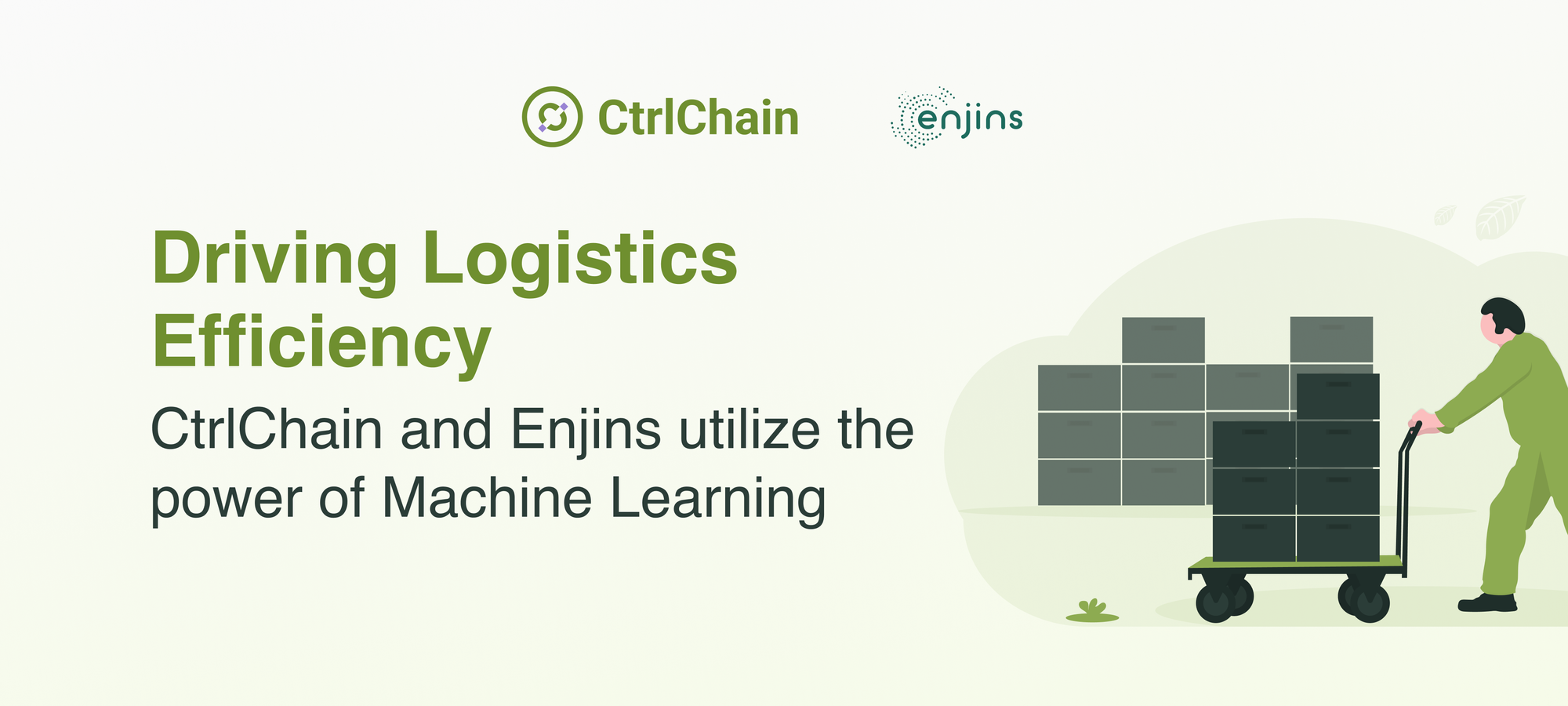🎣 Freight’s Brutal Reset
Plus: Broker liability gets a fresh challenge after a new court ruling, Ferrero scoops up Kellogg Co. for $3.1B, Walmart holds the crown in 2025 retail rankings, and more.
How are AI and ML reshaping the logistics industry in 2024? From predictive analytics to route optimization, uncover the efficiency gains, cost reductions, and strategic advancements driving the future of freight operations.

As we venture into 2024 and beyond, the freight industry faces a landscape brimming with both challenges and opportunities. Geopolitical pressures and the surge in e-commerce have dramatically increased the demand for efficient and transparent shipping services. These industry shifts, plus the pressing issues of rising fuel costs and more green regulations, have created an increased need for innovative solutions.
The focus is Artificial Intelligence (AI) and Machine Learning (ML). Far from being mere buzzwords, these technologies stand at the forefront of a logistical shift. AI and ML are not just about task automation; they are the keys to unlocking vast data-driven potentials. These technologies facilitate enhanced decision-making, optimized operations, and elevated customer experiences. Whether through predictive analytics for demand forecasting or real-time shipment tracking, AI and ML are reshaping the fabric of freight operations.
AI in supply chain management is now enabling businesses to improve their efficiency by an impressive 40%. Furthermore, 49% of supply chain leaders believe AI will be a disruptive force in their industry within the next three years, illustrating the critical role of technology in shaping the future of logistics.
In this blog post, we will look into the transformative role of AI and ML in freight optimization. We'll explore how these technologies address current industry challenges and pave the way for a more efficient and sustainable future in logistics.

Freight logistics has traditionally been governed by manual planning and decision-making, often leading to inefficiencies and increased operational costs. However, the emergence of AI and ML marks the beginning of an era where data-driven insights and automated decision-making are becoming the norm. This evolution signifies a move from reactive to proactive and predictive management.
By embracing these technologies, freight companies can enhance their operational efficiency and gain a competitive edge in an increasingly dynamic market.
Implementing ML in freight operations significantly enhances the industry's efficiency and effectiveness. By leveraging data and automated processes, logistics companies are experiencing improvements in operational efficiency, cost reductions, and heightened customer satisfaction.
Innovations like UPS's ORION system, an AI-based tool, exemplify the dramatic impact of technology. ORION helps save $50 million for every mile reduced from daily driver routes, showcasing the immense cost-saving potential of AI in logistics.

By 2035, ML, as a core component of AI in logistics, is expected to elevate productivity by over 40%.

The collaboration between CtrlChain (formerly ChainCargo) and Enjins in developing a data and ML platform highlights the impactful role of ML in logistics:
This case study demonstrates how ML can enhance operational processes and contribute to strategic business growth and environmental sustainability in the logistics industry.
While the benefits of AI are clear, the path to digital transformation is not without challenges. Approximately 6 out of 10 large corporations are considering the implementation of AI to transform their supply chain operations.
It's important to have a firm grasp of some of the obstacles and potential pitfalls of adoption and integration to be better able to avoid them.
In an era where data is a valuable asset, ensuring its privacy and security is paramount. Companies must invest in robust security measures to protect sensitive logistics data against breaches and misuse.
Integrating AI and ML technologies with existing logistics systems and processes can be complex. This often requires significant IT infrastructure upgrades and may pose operational challenges during the transition period.
Adopting new technologies like AI and ML necessitates a cultural shift within organizations. Effective change management strategies are essential to ease the transition, ensuring employee buy-in and effective use of new systems.
Compliance with various regional and industry-specific regulations is crucial when implementing AI and ML in logistics. Companies must navigate these regulations carefully to avoid legal pitfalls.
While integrating AI and ML poses challenges, the effort is rewarding. Organizations adopting AI have witnessed an average reduction of 25% in end-to-end supply chain costs, highlighting the cost-effectiveness of AI technologies. Remarkably, 80% of businesses see a return on investment within the first year of AI deployment in the supply chain, indicating the rapid financial benefits of adopting AI solutions.
AI and ML technology already display benefits in terms of efficiency, cost reduction, and enhanced customer satisfaction. The journey of CtrlChain and its partnership with Enjins demonstrates the practical and sustainable applications of AI and ML.
Looking ahead, the potential of AI and ML in freight logistics is boundless. With continuous advancements in technology, we can anticipate even more innovative applications that will further streamline logistics processes, enhance decision-making, and contribute to sustainable industry practices.
The key to success lies in navigating the challenges associated with implementing these technologies, such as ensuring data security, integrating with existing systems, and adapting to regulatory standards.
For logistics companies aiming to stay competitive and forward-thinking, the integration of AI and ML is a necessity. As we continue to witness the transformative impact of these technologies, it is clear that the future of freight logistics is here, driven by the power of AI and ML.
Join over 12K+ subscribers to get the latest freight news and entertainment directly in your inbox for free. Subscribe & be sure to check your inbox to confirm (and your spam folder just in case).